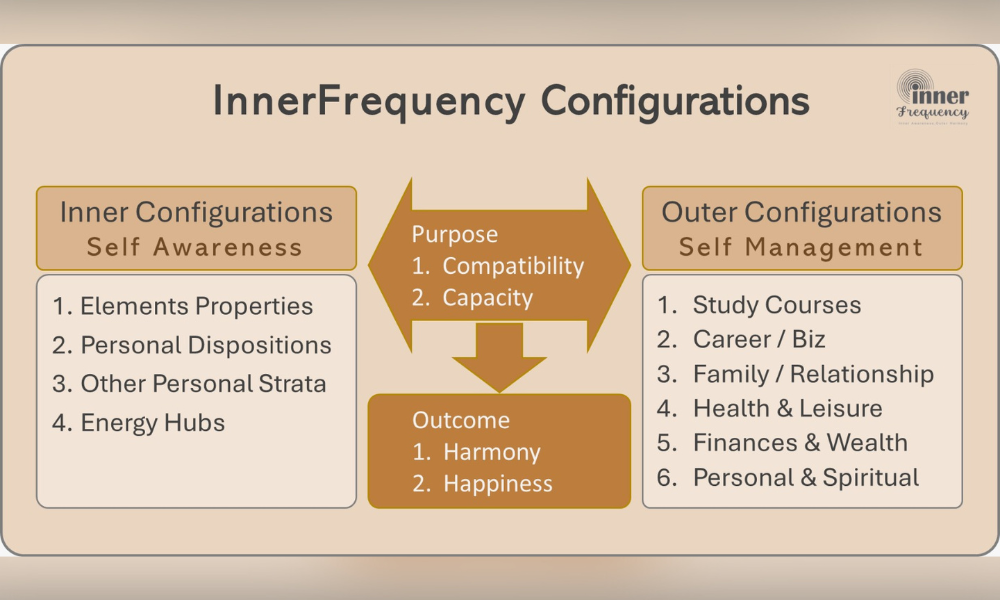
Expert details how people’s inclinations can determine fit for a job

Finding workers who fit just right with a job and a company is always a challenge for employers.
One way they can see greater success is by turning their attention to candidates’ “inner frequency,” says Chael Hor, founder of Inner Frequency, meaning that which makes each individual unique.
“Everybody has their own peculiarity. It is kind of an operating system. Although we are the same in one sense – physically, outwardly – inside, we have our own inclinations, motivations, strengths, limitations, wants, needs, leadership styles,” he says in talking with HRD Asia.
“You don't expect a duck to behave like a chicken, or a chicken to be like an eagle, or an eagle to be like an owl.”
Contrary to fears of AI-driven job losses in the future, a previous ManpowerGroup report has revealed that 55% of employers worldwide are planning to increase headcount over the next two years due to the rapidly developing technology.
Inner frequency has many inclinations, says Hor. For one, you cannot just fit into any job or any study.
“Some people are not good mathematically because they need a logical mind.”
A person who is an extrovert and who does not like math, for example, will be more inclined to be a DJ or in the hospitality business, perhaps, he explains.
“Unfortunately, our education system is very logic-based, memory-based. Whether it be geography, physics, mathematics, it's a memory work… You just keep on learning, memorizing and then articulating. So, the very sad thing is that it actually shapes the way we lead our life.”
The inner frequency also applies to a worker’s fit within a company, he says. There will be issues within companies that do not understand workers’ profiles, he says.
Even though workers may be able to fit in when they are hired, workers may lose their compatibility with their work if they are promoted or transferred to another job, says Hor.

The compatibility level between a worker’s inner frequency and their job can also affect their stress level at work.
“You must have at least a 75% to 100% compatibility rate,” he says. “Anything below that, you are going to have a sense of disconnectedness.”
At 100%, the level of stress is manageable, says Hor.
“When it comes to 75%, it is still okay. If you have a back door, a leisure activity, you go back home, you play with your kids, you play with your dog – immediately, you're happy.
“But when you reach the 50% threshold, the stress is going to be obvious. You're going to be upset daily, you're going to be frustrated daily, and you're going to take it out on people around you. And so the whole thing will start to escalate. And at the bottom, you're going to have more… migraines.”
Many workers in Singapore highlighted “good work-life balance” as the paramount factor when choosing an ideal employer, according to a previous report from Randstad Singapore.
While recruiters look at workers’ resumes to find who may be right for open roles, it is during the interview process that employers can truly find out if a worker is a good match for a job and for the company, says Hor.
“During the interview, we look at the range of predictability.”
He cites hiring an engineer as an example.
“Engineers are people who deal with… numbers, figures, precision, time frames”
That should make up about 80% or so of the assessment process, he says.
The rest, employers can assess by taking a deep analysis of applicants’ behaviours, ways of communication, body posture and how they articulate their answers during the interview, says Hor.
When the person is a right fit, “you'll find that his training is shorter,” he says.
That’s because the person is interested in the training that you are going to be offering.
Also, the retention rate is higher, he says, and the person’s potential to be successful in the job is “boundless,” says Hor.
“All these translate to productivity and profitability for the company.”
The trend of career cushioning is emerging in the Philippine workforce as nearly half of employees there begin looking for new jobs, according to talent solutions firm Robert Walters.